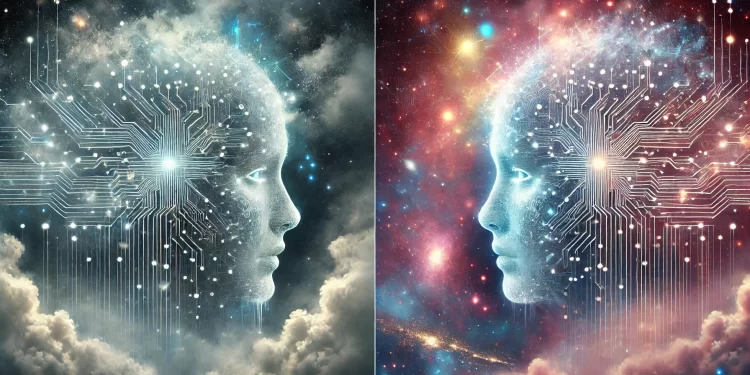AI experts are working together to create what may be the most challenging set of questions ever designed, aimed at testing the limits of today’s most advanced artificial intelligence (AI) systems. This groundbreaking initiative, aptly dubbed “Humanity’s Last Exam,” is being spearheaded by the Center for AI Safety (CAIS) and Scale AI, a data labeling firm that has recently gained significant investment, raising over a billion dollars.
This innovative test, meant to push AI systems to their absolute limits, aims to identify weaknesses in current models while helping to refine future developments. Unlike other assessments, “Humanity’s Last Exam” focuses not just on factual knowledge but also on abstract reasoning, making it harder for AI to succeed purely through memorization.
Interestingly, the announcement of this test came just one day after OpenAI‘s o1 model preview results were made public. According to CAIS executive director Dan Hendrycks, the o1 model managed to surpass current benchmarks in reasoning, setting a new standard for AI capabilities. In response to such developments, this new exam will serve as a more rigorous test of AI’s cognitive flexibility, something that goes beyond just factual recall.
Hendrycks has been involved in shaping AI testing for years, having co-authored several papers in 2021 that introduced new methods for evaluating whether AI could outperform human undergraduate students. While those early tests saw AI models offering answers almost at random, today’s AI systems have greatly improved, outperforming earlier exams with relative ease. This progress, while exciting, underscores the need for even more challenging assessments.
A Broad and Confidential Approach
Reuters explains that what sets “Humanity’s Last Exam” apart from previous tests is its emphasis on abstract thinking. Rather than solely focusing on topics like math and social studies, this exam will involve complex, multidisciplinary questions that test an AI’s ability to reason across various fields. The criteria for the exam will remain confidential, ensuring that the AI systems taking the test cannot “learn” from the answers beforehand—a crucial step to prevent AI models from gaming the system.
To build this exam, CAIS and Scale AI are reaching out to experts from all corners of academia and industry, from rocketry engineers to philosophers. These contributors are being asked to submit questions that would challenge even experts in their own fields. Submissions will undergo peer review, and the most impactful questions may earn their authors co-authorship in a published paper, along with potential prizes of up to $5,000.
Why Weaponry Is Off-Limits
While the test will cover a broad range of topics, one area is strictly prohibited: weaponry. According to the organizers, the decision to exclude weapons-related questions stems from concerns about AI learning dangerous information that could pose significant risks to society. Given the rapid pace of AI development, maintaining ethical boundaries in AI training is critical, especially when considering potential applications in military or defense sectors.
As submissions pour in ahead of the November 1 deadline, the anticipation grows over what these rigorous new questions could reveal about AI’s true potential—and its limits. If today’s AI systems manage to ace “Humanity’s Last Exam,” it may signal the dawn of even more sophisticated AI tools capable of tackling real-world problems that require advanced reasoning and decision-making.
However, the ultimate goal isn’t just to stump AI. It’s about understanding how these systems think, where they struggle, and how they can be made safer and more reliable. By identifying weaknesses now, developers hope to build more resilient and ethically sound AI models for the future.
What do you think? Could these tests reveal unexpected weaknesses in AI, or will they only push the boundaries of what’s possible? Let us know your thoughts on the evolving relationship between humans and artificial intelligence.
Join the Conversation!
Have something to share or discuss? Connect with us on Facebook and join like-minded explorers in our Telegram group. For the latest discoveries and insights, make sure to follow us on Google News.











